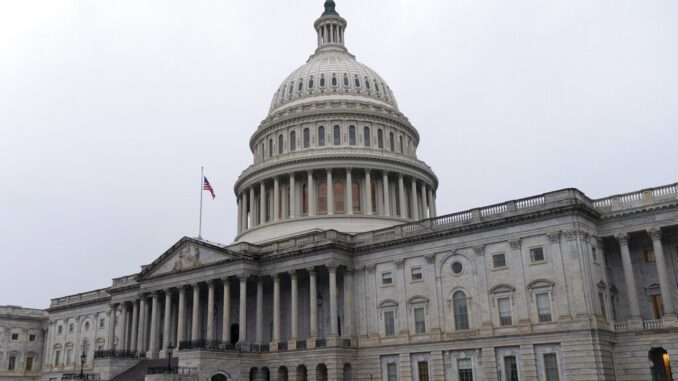
Now that Democrats have unified control of our federal government in Washington for the first time in a decade, some on the left would like to eliminate the legislative filibuster to let loose a flurry of progressive legislation.
High-profile Democrats endorsed the idea earlier this year. Presidential-elect, and former senator and vice-president, Joe Biden said, “If there’s no way to move other than getting rid of the filibuster, that’s what we’ll do.” Senate Majority Leader Chuck Schumer of New York has said “nothing is off the table” to move legislation. Former President Barack Obama called for eliminating the filibuster in his funeral eulogy for the late Congressman John Lewis.
If they do this, they will regret it, since they won’t be in the majority forever, and perhaps not for very long — especially if they let loose a geyser of liberal laws and voters kick them out in two years.
There’s no doubt that both parties dislike the filibuster whenever they are in the majority. The current practice of the minority party filibustering just about everything has made the Senate the most dysfunctional branch of government.
Traditionally, getting rid of the filibuster was once nearly impossible. For one thing, to change the rules, it requires a super-majority vote of two-thirds (67) of the number of senators in office (present or not), to overcome, ironically, a filibuster of the rules change. But over the last few years, the Senate has done an end-run around its own rules to change aspects of the filibuster.
The Senate majority, when each party has been in control, has used the “nuclear option” to make changes to the filibuster. The “nuclear option” is not a change in the rules, but a change in the way the rules are interpreted. Normally, a filibuster can be overcome by invoking cloture, which requires three-fifths of the Senate, or 60 votes. Former Democratic Majority Leader Harry Reid changed the interpretation of the rules by using a simple procedural motion, so that — regardless of what the words on parchment said — only a simple majority would be needed to invoke cloture and end a filibuster.
In effect, Sen. Reid unilaterally just ignored over two centuries of Senate precedent.
In 2013, Reid invoked the nuclear option to eliminate the filibuster for most judicial nominations except to the Supreme Court. In 2017, Senate Majority Leader Mitch McConnell, a Republican, returned the favor to eliminate the filibuster for nominations to the Supreme Court. Additionally, in April 2019, McConnell used the nuclear option to shorten post-cloture debate time on nominations for District Court positions and sub-Cabinet level appointees.
The concern today is, of course, that soon-to-be Majority Leader Chuck Schumer could decide to ignore filibuster rules on legislative items such as packing the Supreme Court, passing the Green New Deal and giving statehood to Puerto Rico and the District of Columbia.
By using the nuclear option, it is definitely possible that Leader Schumer could change the precedents of the Senate to essentially neuter the filibuster without actually changing the rules. You can see why the nuclear option generates such concern — essentially, the Senate has no rules anymore except what a majority says. This flies in the face of the traditional role of the Senate to protect the rights of the political minority.
However, practically speaking, Schumer will need a bigger majority than 50-50 with Vice-President Kamala Harris as the tie breaker, to make such a radical change. Sen. Joe Manchin of West Virginia and Sen. Diane Feinstein of California, both Democrats, have already announced that they would oppose eliminating the filibuster on legislation. Still, the next election is two years away, and if the Democrats were to pick up 3-4 new seats, they might be able to make that change — and then, legislatively speaking, Katie bar the door.
Given all of this, perhaps the best answer is not to get rid of the filibuster, but to reform it. They can make senators actually conduct filibusters on the floor rather than allow them to exist silently in their Senate office while the body switches to other, less controversial, business. If senators had to actually stand on their feet to conduct a filibuster, they would still take place, but senators would be far more discerning of the bills they filibuster, and more concerned about the time demands they place on their colleagues.
The Senate has long been heralded as the world’s Greatest Deliberative Body. Currently, it is perhaps one of the free world’s most dysfunctional legislatures. By returning to the centuries-old tradition of compromise and respect for the institution, the Senate can go a long way towards recovering its tarnished reputation.
Mark Strand is the President of the Congressional Institute and Timothy Lang is the Institute’s research director. The Sausage Factory blog is a Congressional Institute project dedicated to explaining parliamentary procedure, Congressional politics, and other issues pertaining to the legislative branch.




